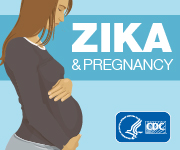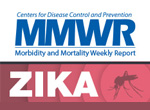Risk Mitigation Strategies to Reduce Opioid Overdoses
This is the sixth webinar in a COCA Call series about CDC Guideline for Prescribing Opioids for Chronic Pain. To view a list of other webinars in the series, visit the opioid call series overview webpage
Date:Tuesday, December 6, 2016
Time: 2:00-3:00 pm (Eastern Time)
Presenter(s)
Deborah Dowell, MD, MPH
Senior Medical Advisor
Division of Unintentional Injury Prevention
National Center for Injury Control and Prevention
Centers for Disease Control and Prevention
Jane C Ballantyne, MD, FRCA
Professor
Anesthesiology and Pain Medicine
Department of Medicine
University of Washington
Harborview Medical Center
Joseph O. Merrill MD, MPH
Associate Professor
Department of Medicine
University of Washington
Harborview Medical Center
Overview
When prescribing opioids, risk mitigation strategies can be an effective way to reduce abuse and overdose. Strategies described in CDC’s Guideline for Prescribing Opioids for Chronic Pain include reviewing prescription drug monitoring program (PDMP) data, urine drug testing (UDT), and co-prescribing naloxone. During this COCA Call, clinicians will learn about steps they can take when concerning information is discovered through PDMP checks or UDT. Presenters will review how to evaluate factors that increase risk for opioid overdose and how to determine when co-prescribing naloxone would be beneficial. In addition, a case study of a 46-year-old man with chronic low back pain, on high-dose opioid, will be presented to illustrate how PDMP and UDT results and medical evaluation can be used for opioid treatment decision-making.
Objectives
- Describe the evidence for opioid prescribing risk mitigation strategies.
- Review different opioid prescribing risk mitigation strategies.
- Summarize steps that clinicians can take when concerning information is discovered through prescription drug monitoring program checks and urine drug testing.
- Evaluate factors that increase risk for opioid overdose and determine when co-prescribing naloxone would be beneficial.
Call Materials
- Slides: Read Now
- Transcript: Read Now
- Audio: Listen Now
- Webcast: Watch Now
Additional Resources
CDC Guideline for Prescribing Opioids for Chronic Pain and Related Materials
- SAMHSA Buprenorphine Training for Physicians
- MMWR: CDC Guideline for Prescribing Opioids for Chronic Pain — United States, 2016
- JAMA Special Communication: CDC Guideline for Prescribing Opioids for Chronic Pain
- Guideline Resources: Clinical Tools
- Pocket Guide: Tapering Opioids for Chronic Pain
- Guideline for Prescribing Opioids for Chronic Pain: Recommendations
- Checklist for Prescribing Opioids for Chronic Pain
- Nonopioid Treatments for Chronic Pain
- Assessing Benefits and Harms of Opioid Therapy
- Calculating Total Daily Dose of Opioids for Safer Dosage
- Prescription Drug Monitoring Programs (PDMPs)
CDC Vital Signs
CDC Injury Prevention and Control
- CDC Prescription Drug Overdose
- Prescription Drug Overdose: What Health Care Providers Need to Know about the Epidemic
- Prescription Drug Overdose Prevention for States
Other Agency Resources
- The White House - Office of National Drug Control Policy: Opioid Abuse in the United States[471KB]
- NIH Pain Consortium Centers of Excellence in Pain Education (CoEPEs)
- Providers' Clinical Support System for Medication Assisted Treatment
- Providers' Clinical Support System for Opioid Therapies
- CMS Improvements to Medicare Drug and Health Plans
- SAMHSA - Substance Abuse and Mental Health Services Administration
- National Institute on Drug Abuse
- PDMP Center of Excellence, Brandeis University
Call Format
- Audio conference call on 12/6/16: 2:00 - 3:00 PM EDT
- Web-on-demand training after 3:00 PM EDT on 12/6/16
- Materials: PowerPoint slide set
Accreditation Statements
Continuing Education
- Activity number:WCWD2286(SC)
- Date of origination:December 12, 2013
- Date of renewal:December 12, 2015
- Date of expiration:December 12, 2017
- Prerequisites:None
- To earn continuing education/contact hours
Target Audience
- Physicians
- Nurses
- Pharmacists
- Veterinarians
- Physician Assistants
- Health Educators
- Other Clinicians
Hardware/Software
Additional Information
- Contact Information:coca@cdc.gov
- Support/Funding:Centers for Disease Control and Prevention, Emergency Risk Communications Branch
- Method of Participation:You may participate in the educational activity by viewing the program information above.
- Fees:COCA continuing education credits are free.
Accreditation Statements
CME:The Centers for Disease Control and Prevention is accredited by the Accreditation Council for Continuing Medical Education (ACCME®) to provide continuing medical education for physicians.
The Centers for Disease Control and Prevention designates this live activity for a maximum of 1.0 AMA PRA Category 1 Credit™. Physicians should only claim credit commensurate with the extent of their participation in the activity.
CNE:The Centers for Disease Control and Prevention is accredited as a provider of Continuing Nursing Education by the American Nurses Credentialing Center's Commission on Accreditation.
This activity provides 1.0 contact hour.
IACET CEU:The Centers for Disease Control and Prevention is authorized by IACET to offer 1.0 CEU's for this program.
CECH:Sponsored by the Centers for Disease Control and Prevention, a designated provider of continuing education contact hours (CECH) in health education by the National Commission for Health Education Credentialing, Inc. This program is designed for Certified Health Education Specialists (CHES) and/or Master Certified Health Education Specialists (MCHES) to receive up to 1.0 total Category I continuing education contact hours. Maximum advanced level continuing education contact hours available are 0. CDC provider number 98614.
 CPE:The Centers for Disease Control and Prevention is accredited by the Accreditation Council for Pharmacy Education as a provider of continuing pharmacy education. This program is a designated event for pharmacists to receive 0.1 CEUs in pharmacy education. The Universal Activity Number is 0387-0000-16-211-L04-P and enduring 0387-0000-16-211-H04-P course category.
CPE:The Centers for Disease Control and Prevention is accredited by the Accreditation Council for Pharmacy Education as a provider of continuing pharmacy education. This program is a designated event for pharmacists to receive 0.1 CEUs in pharmacy education. The Universal Activity Number is 0387-0000-16-211-L04-P and enduring 0387-0000-16-211-H04-P course category.
Course Category: This activity has been designated as knowledge-based.
Once credit is claimed, an unofficial statement of credit is immediately available on TCEOnline. Official credit will be uploaded within 60 days on the NABP/CPE Monitor.
AAVSB/RACE:This program was reviewed and approved by the AAVSB RACE program for 1.0 hours of continuing education in the jurisdictions which recognize AAVSB RACE approval. Please contact the AAVSB RACE Program at race@aavsb.org if you have any comments/concerns regarding this program’s validity or relevancy to the veterinary profession.
CPH: The Centers for Disease Control and Prevention is a pre-approved provider of Certified in Public Health (CPH) recertification credits and is authorized to offer 1 CPH recertification credit for this program.
CDC is an approved provider of CPH Recertification Credits by the National Board of Public Health Examiners. Effective October 1, 2013, the National Board of Public Health Examiners (NBPHE) accepts continuing education units (CEU) for CPH recertification credits from CDC. Please select CEU as your choice for continuing education when registering for a course on TCEOnline. Learners seeking CPH should use the guidelines provided by the NBPHE for calculating recertification credits. For assistance please contact NBPHE at http://www.NBPHE.org.
There is no cost for this program.
DISCLOSURE: In compliance with continuing education requirements, CDC, our planners, our presenters, and their spouses/partners wish to disclose they have no financial interests or other relationships with the manufacturers of commercial products, suppliers of commercial services, or commercial supporters. Planners have reviewed content to ensure there is no bias.
CDC does not accept commercial support.
- Page last reviewed: November 29, 2016
- Page last updated: December 19, 2016
- Content source:
- Maintained By:





 ShareCompartir
ShareCompartir
 =
=